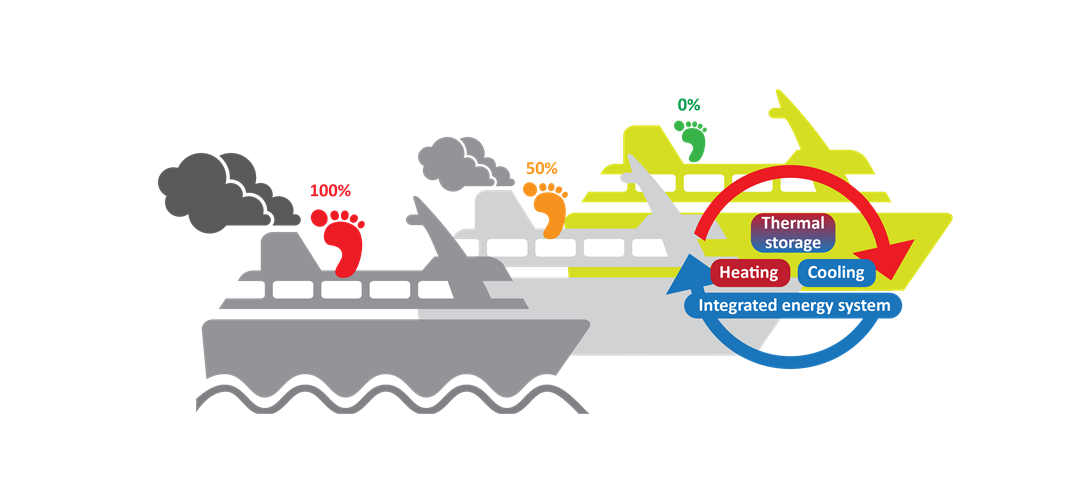The cruise and passenger ship industry is an important value creator in Norway. Every other ship built in Norway is a passenger ship, and Norway is a major global supplier of environmentally friendly ship designs and technologies. However, there are challenges related to reducing the ship's energy demand and emissions. To remain competitive, ship designers and operators need to exploit emerging technologies and implement innovative concepts for reducing the environmental footprint. In this context, there is a strong need for R&D activities related to a more integrated approach for ship design, and to develop energy-saving technologies that are novel to the maritime industry.
Future Low-Emission Passenger Ships (LowPass) is a collaborative project between SINTEF, NTNU, Fosen Design & Solutions and Color Line Marine. The overall ambition of the project is to reduce the energy consumption of hotel systems on board passenger ships through innovative technological solutions. Ultimately, the project will analyse the possibility of energy self-sufficient operation of the hotel facilities. The aim is to enable the design of zero-emission hotel operation, with a long-term vision of power-house operation. This will significantly reduce greenhouse gas emissions and costs related to the hotel system operation.
Energy intensive industry
Cruise ships are an energy intensive industry, where the energy demands are typically covered using fossil energy. This leads to a high carbon footprint per passenger, in addition to local air pollution which is harmful to the environment and human health.
In the change towards greener passenger ships, the focus has typically been on novel propulsion systems using liquefied natural gas (LNG) or hybrid systems with batteries. The energy use for the hotel systems, including heating, cooling and hot water, constitutes around 40% of the total energy use on board. To effectively reduce greenhouse gas emissions from the cruise sector and enable zero-emission operation, it is therefore crucial to also consider the hotel system. Another challenge, and opportunity, is the integration of the energy use in the propulsion system and the hotel system. In order to reduce the fuel consumption, any waste heat from the propulsion system should be efficiently recovered and utilised in the hotel system.
Energy efficient hotel facilities
The LowPass project aims to develop a novel methodology for design of hotel systems on board passenger ships. Passive energy saving solutions for the ship envelope will be investigated, including insulation and efficient utilisation of natural lighting and solar radiation. In addition, integrated heat pumps and thermal energy storage will be used to enable efficient heat recovery from the propulsion system and optimise the energy supply on board. To facilitate this research, dynamic simulation models will be developed for the passenger ships.
The research conducted in LowPass will contribute to a reduction in primary energy consumption for passenger ships, as well as maximising the utilisation of waste heat on board. The developed design methodology and simulation models will enable further improvements in the design and operation of existing and future passenger ships. All in all, the project will provide a significant contribution towards zero-emission hotel facilities on board passenger ships and possible future power-house operation.

